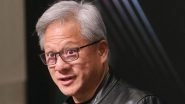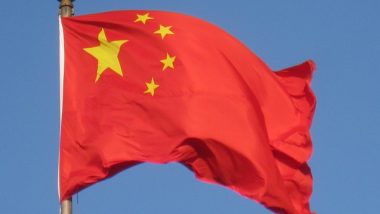Beijing, October 16: An investigation into a "revolutionary" money laundering tactic for Mexican drug cartels, introduced by Chinese American Gangster Xizhi Li, reveals that the Chinese government may have been involved in this organized crime, media reports said.
For many years, the Mexican cartels that supply the US market with cocaine, heroin and fentanyl smuggled truckloads of bulk cash to Mexico. Later with the help of banks and exchange houses, they pumped the money into the Mexican financial system. China May Have Committed ‘Crimes Against Humanity’ in Its Treatment of Uyghur Muslims in Xinjiang: UN Rights Report.
However, those methods were costly. They took weeks or even months to complete the transactions. It also posed high risks of damage, robbery and confiscation. Cyber Crime: Chinese Hackers Target Russian Defence Research Institutes, Says Report.
After Li entered the money laundering crime, the drug cartels were supplied to a new destination- Chinatown, an area outside mainland China where immigrant Chinese people live.
Cartel operatives delivered suitcases full of cash to Chinese couriers directed by Li. Cash exchanges took place in motels and parking lots. The couriers were ordinary people for instance, students, waiters, drivers, reported Pro Publica.
A Drug Enforcement Administration (DEA) investigation found the Chinese government may have been involved into this nexus. Once the exchanges occur, the couriers alerted their Chinese bosses in Mexico, who quickly sent pesos to the bank accounts or safe houses of Mexican drug lords.
Li then executed a chain of transactions through China, the United States and Latin America to launder the dollars. "At no time in the history of organized crime is there an example where a revenue stream has been taken over like this, and without a shot being fired," said retired DEA agent Thomas Cindric, a veteran of the elite Special Operations Division.
"This has enriched the Mexican cartels beyond their wildest dreams." As they investigated Li's tangled financial dealings, US agents came across evidence indicating that his money laundering schemes involved Chinese government officials and the Communist Party elite. China's omnipresent security forces tightly control and monitor its state-run economy.
In an interview with ProPublica, a senior US military leader Craig Faller said China has "the world's largest and most sophisticated state security apparatus. So there's no doubt that they have the ability to stop things if they want to. They don't have any desire to stop this. There are a lot of theories as to why they don't. But it is certainly aided and abetted by the attitude and way that the People's Republic of China views the globe," reported Pro Publica.
Some US officials go further, arguing that Chinese authorities have decided as a matter of policy to foster the drug trade in the Americas in order to destabilize the region and spread corruption, addiction and death here, the media portal said.
"We suspected a Chinese ideological and strategic motivation behind the drug and money activity," said former senior FBI official Frank Montoya Jr., who served as a top counterintelligence official at the Office of the Director of National Intelligence. "To fan the flames of hate and division. The Chinese have seen the advantages of the drug trade. If fentanyl helps them and hurts this country, why not?"
(The above story is verified and authored by ANI staff, ANI is South Asia's leading multimedia news agency with over 100 bureaus in India, South Asia and across the globe. ANI brings the latest news on Politics and Current Affairs in India & around the World, Sports, Health, Fitness, Entertainment, & News. The views appearing in the above post do not reflect the opinions of LatestLY)













 Quickly
Quickly


